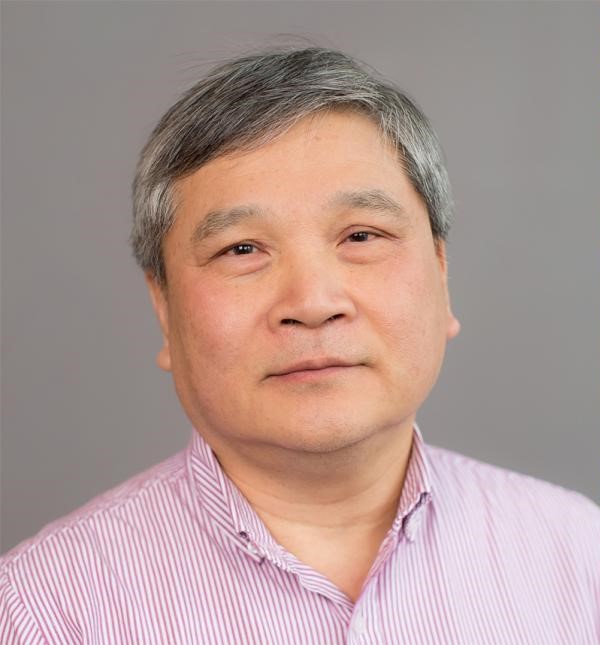Dr. Zhu is a Regents Professor of Biomedical Engineering, Mechanical Engineering, and Physics and holds the J. Erskine Love, Jr. Endowed Chair in Engineering at the Georgia Institute of Technology and Emory University. While his Ph.D. and postdoctoral training with Richard Skalak at Columbia University and University of California, San Diego was on the mathematical modeling of cell locomotion and cell adhesion, he became a experimentalist after he developed his independent lab at Georgia Tech. A strength of Dr. Zhu’s work from this background is a close integration of experiment, modeling and computation, leading to innovation of new methods and techniques. He pioneered the analysis of interactions across the junctional interface between molecules anchored to two apposing surfaces by inventing the required experimental methods with custom-design instruments and developing the needed mathematical models. Armed by these powerful tools, the Zhu lab characterized the biophysical regulations of 2D binding and showed their biological relevance. Dr. Zhu is an internationally recognized leader in molecular biomechanics and mechanobiology and a pioneer of mechanoimmunology. Using molecular dynamic simulations and force spectroscopy on cells, his lab conceptualized and demonstrated several types of mechanical regulation of protein unbinding and unfolding (catch bonds, force-history, cyclic mechanical reinforcement, and dynamic catch) in a variety of receptor–ligand systems, including selectins, integrins, GPIbα, actin, ADAMTS13, and TCR with their counter molecules, and investigated how these dynamic bonds regulate the reception, transmission and transduction of mechanosignals in cells. The Zhu lab has also developed a fluorescence biomembrane force probe (fBFP) and dual biomembrane force probe (dBFP) to enable concurrent measurements of force-regulated receptor–ligand interaction and intracellular signaling so triggered, as well as sequential measurements of dual receptor–ligand species interplay in space and time. Dr. Zhu has been working on B cell mechanoimmunology since 2020 when he helped recruit a B cell immunoengineer, Dr. Ankur Singh, to Georgia Tech. Drs. Zhu and Singh have a joint NCI U01 grant (CA280984) to study the mechanoimmunology of B cell lymphoma. They recently published a joint Science Advances paper on CD40-mediated mechanotransduction in B cells. So far, the Zhu lab has had a postdoc and two PhD students working on B cell immunology projects. One of the students, Jintian Lyu, graduated last year with a PhD thesis focusing on development of a SynNotch-based force sensor for measuring B cell force on CD40 in vivo. The other student, Stefano Travaglino, visited Prof. Dr. Juergen Wienands at the University Medical Center Goettingen three years ago and developed the present project to study BCR mechanimmunology using the Ramos B cell system suggested by Prof. Wienands to express antigen (NIP) specific BCRs of IgM, IgD, and IgG isotypes and to allow easy genetic manipulations to express various mutant BCRs of specific structural alterations. He had scheduled his thesis defense next month. The two aims of the present application employ powerful mechanical techniques developed in the Zhu lab over three decades to bear on the immunology of BCR aiming at shed light to the mechanism by which BCR signaling is initiated. Dr. Zhu feels very excited about the opportunity to bring his expertise in TCR mechanosensing to contribute to the question of BCR mechanosensing!
-->